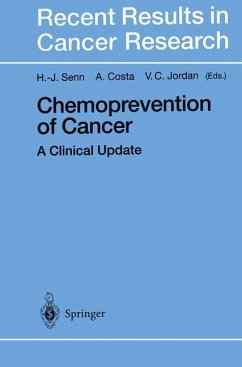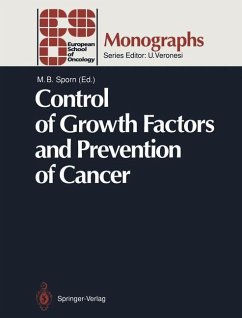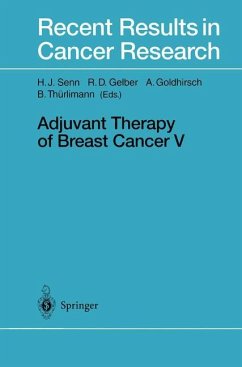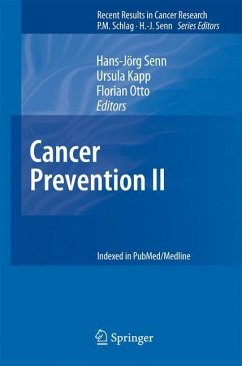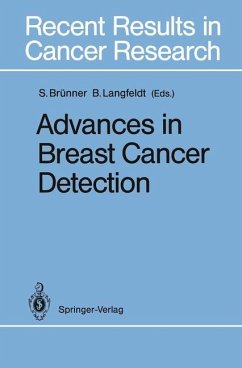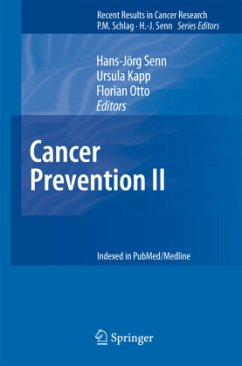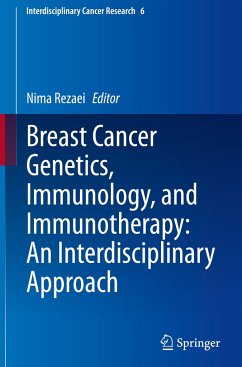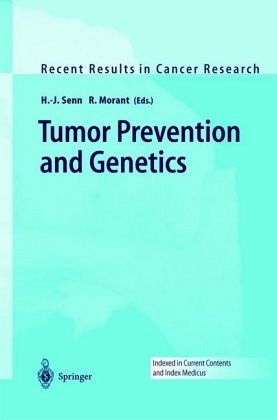
Tumor Prevention and Genetics
Versandkostenfrei!
Versandfertig in 1-2 Wochen
38,99 €
inkl. MwSt.

PAYBACK Punkte
19 °P sammeln!
Hans-Jorg Senn H.-J. Senn (~) Center for Tumor Detection and Prevention, Rorschacherstr. 150, CH-9006 St. Gallen, Switzerland Clinical oncology has centered mainly on developing new strategies and a multitude of new drugs for fighting relapsing and progressive cancer during the last two decades. Furthermore, it has done this with respectable success in quite a number of neoplastic diseases such as acute leukemias and sarcomas in pediatric patients and certain types of aggressive lymphomas, as well as se lected solid tumors such as testicular cancer and choriocarcinoma in adult age. Curatively ...
Hans-Jorg Senn H.-J. Senn (~) Center for Tumor Detection and Prevention, Rorschacherstr. 150, CH-9006 St. Gallen, Switzerland Clinical oncology has centered mainly on developing new strategies and a multitude of new drugs for fighting relapsing and progressive cancer during the last two decades. Furthermore, it has done this with respectable success in quite a number of neoplastic diseases such as acute leukemias and sarcomas in pediatric patients and certain types of aggressive lymphomas, as well as se lected solid tumors such as testicular cancer and choriocarcinoma in adult age. Curatively intended adjuvant chemo-and endocrine-therapies of several "main killers" among prevalent cancer types, especially breast and colon can cer, have also become successful and health-politically meaningful therapeutic targets [1, 2]. However, the net gain in "cure" of these (mostly pharmacologic) therapeu tic approaches has to be realistically judged as having a moderate impact on the cancer problem as a whole, and the mortality rate of the most frequent tu mor types, which are prevalent in adult life, has with very few exceptions not been substantially decreased over the past two to three decades. Increasingly, health politicians, epidemiologists, and medical journal editors are asking for alternative strategies of lowering cancer incidence and increasing survival, ventilating new and hitherto mostly neglected areas of research such as pri mary and secondary cancer prevention.





